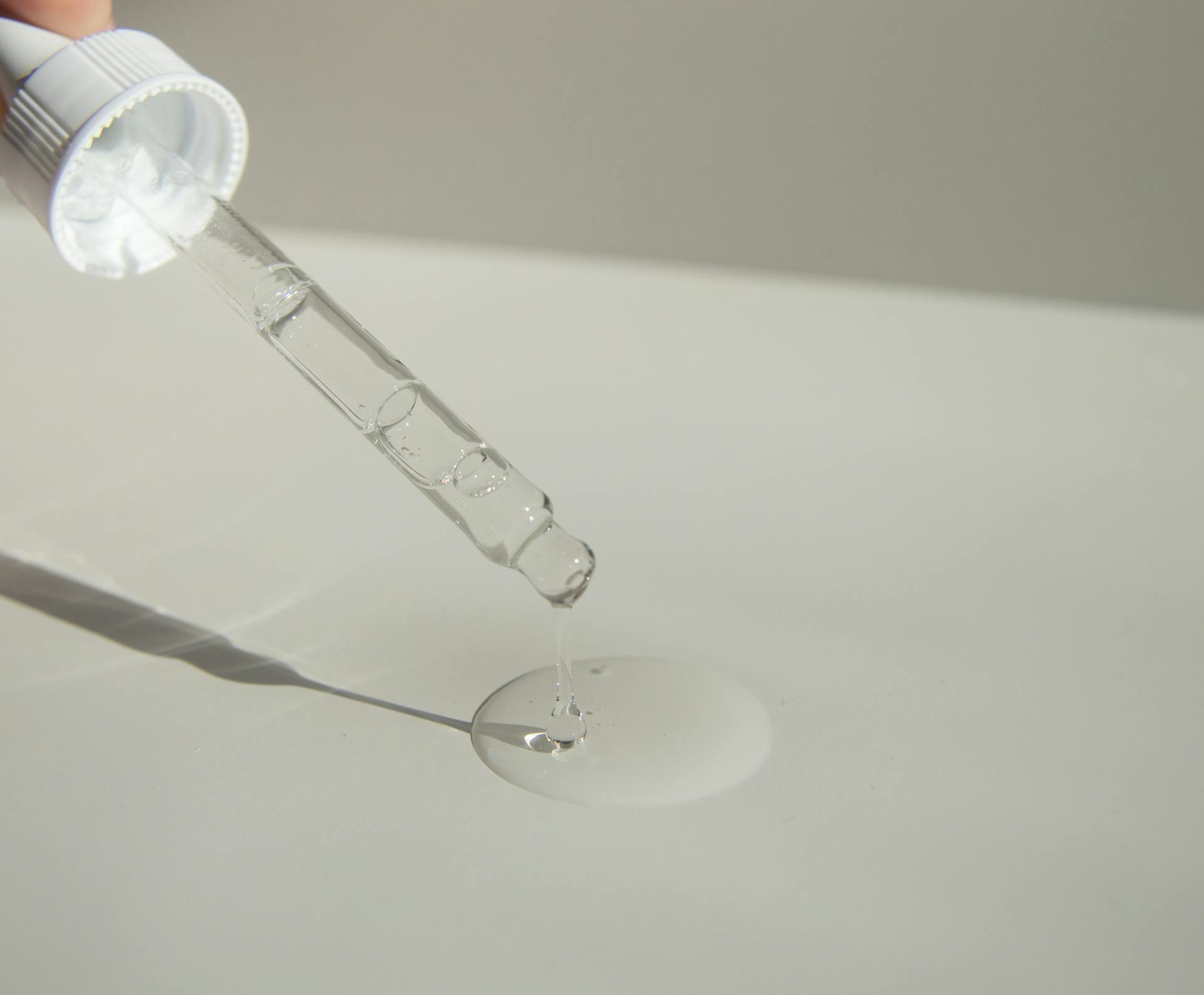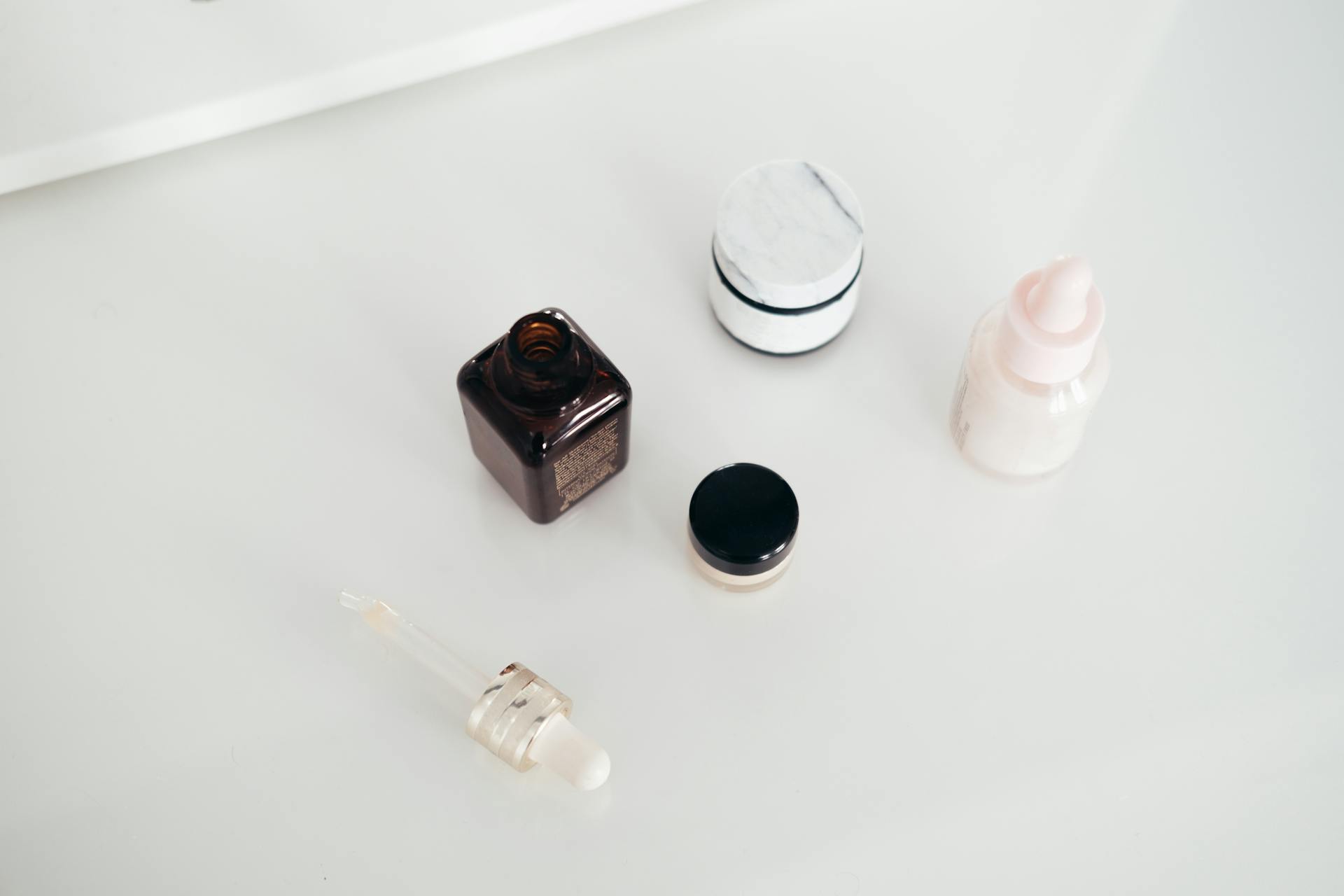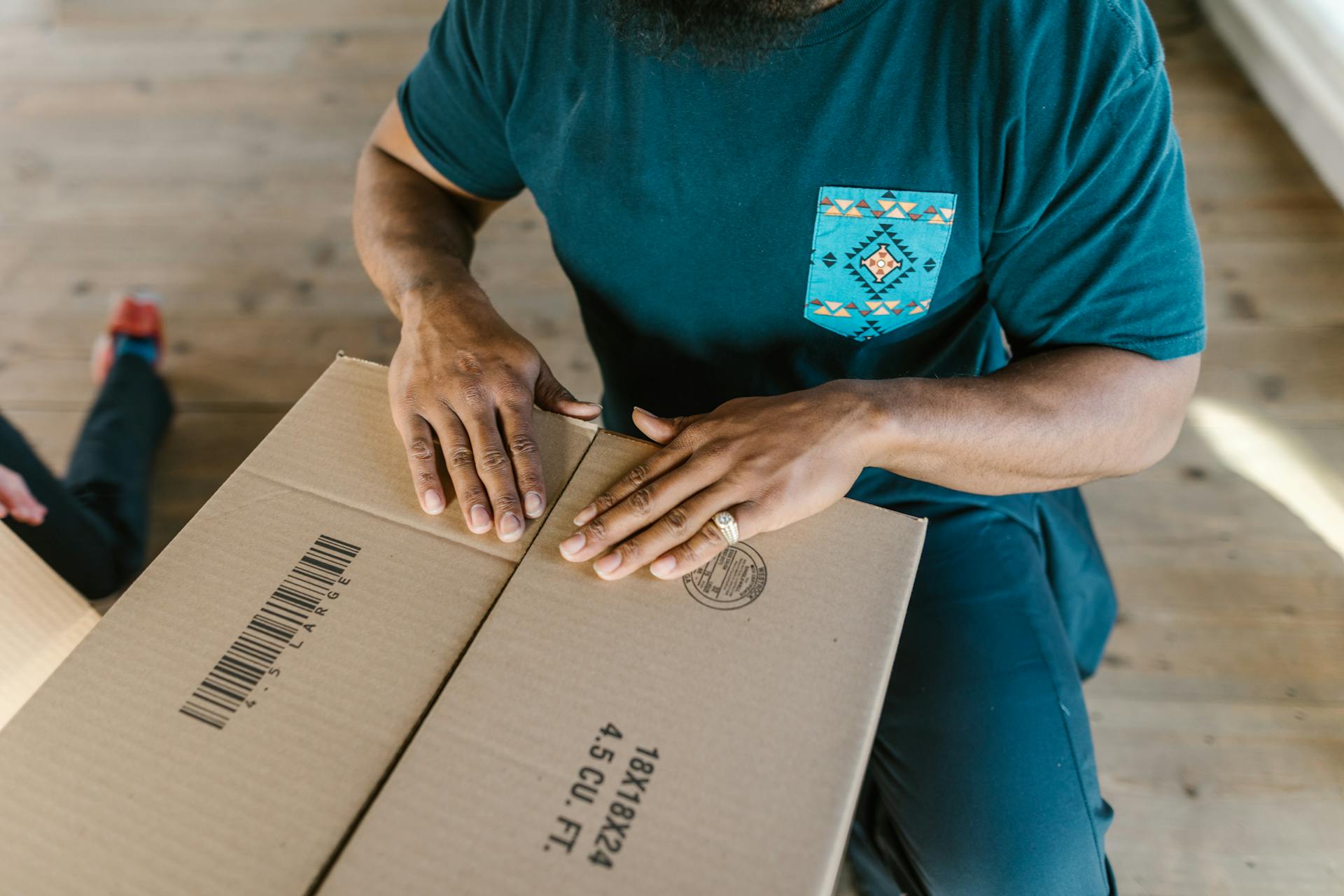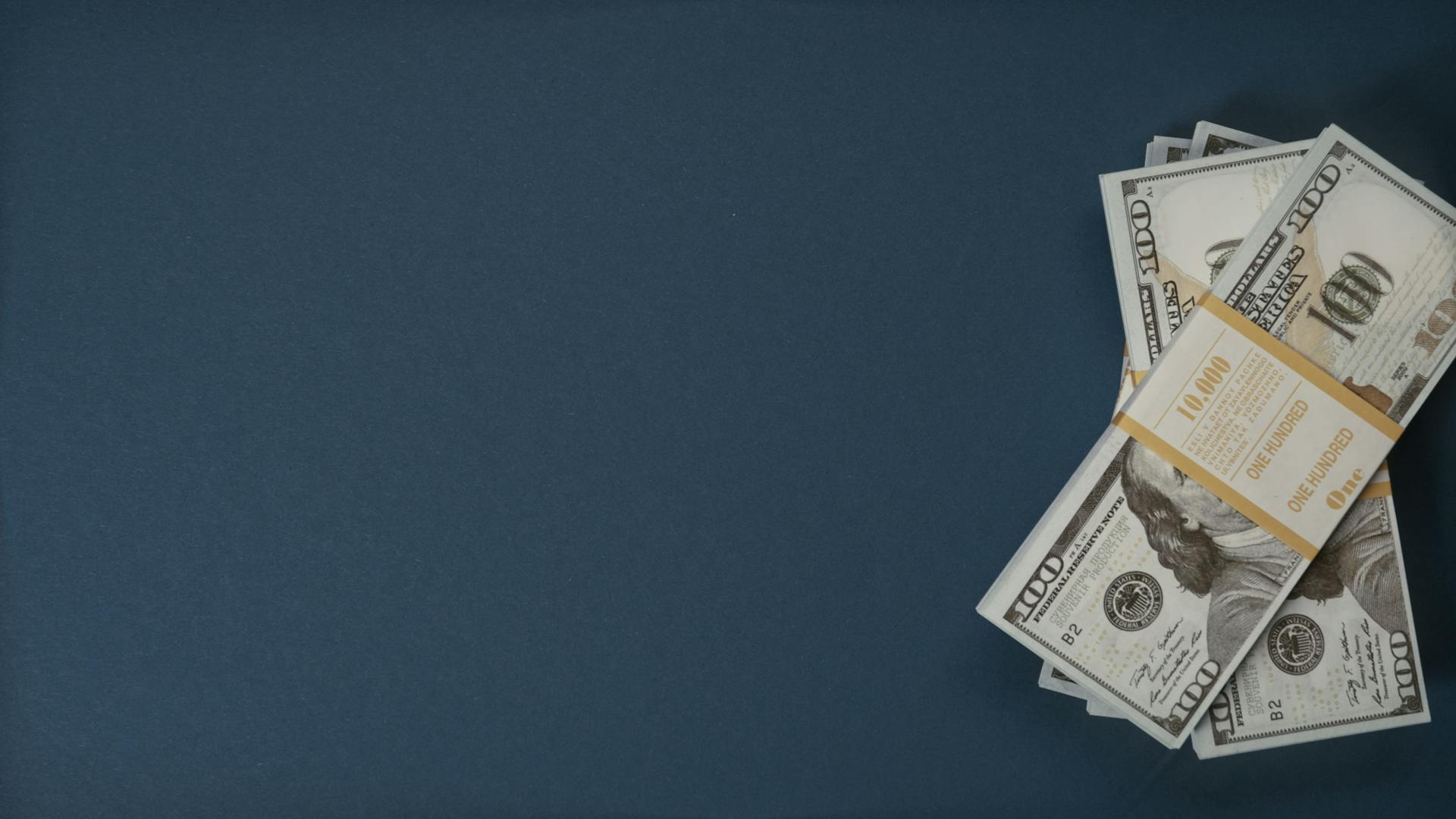
Product liability insurance is a type of insurance that protects businesses from financial losses due to product-related claims.
This insurance coverage is crucial for companies that manufacture, sell, or distribute products, as it helps them avoid costly lawsuits and settlements.
Product liability insurance typically covers three main types of claims: manufacturing defects, design defects, and failure to warn.
Manufacturing defects occur when a product is flawed due to a mistake in the production process, while design defects happen when a product is inherently flawed due to a design error.
Discover more: Business Insurance Claims
What Is Product Liability Insurance?
Product liability insurance is a type of insurance that protects businesses from financial losses due to product-related claims.
This insurance typically covers costs associated with product defects, injuries, or illnesses caused by a product.
What It Covers
Product liability insurance covers a range of claims, including injury, property damage, illness, and wrongful death. This type of insurance protects businesses from financial losses due to faulty or defective products.
In the event of a product malfunction, your insurance policy can pay for legal fees and settlements related to the claim. For example, if a forklift made by your company malfunctions and injures a worker, your policy will cover the costs.
Product liability insurance also covers property damage, such as a remote control that malfunctions and burns a hole in a customer's carpet. Your policy will cover legal fees and settlements in such cases.
Here are some examples of what product liability insurance covers:
- Injury: Claims related to product malfunctions that result in physical harm to a person.
- Property Damage: Claims related to damage or loss of property caused by a faulty or defective product.
- Illness: Claims related to products that cause illness or harm due to contamination or other issues.
- Wrongful Death: Claims related to products that cause death due to malfunction or defect.
General Liability
General liability insurance covers claims related to the complete operations of your business. This type of insurance is not specific to products, but rather to the overall business activities.
If a customer or partner comes to your business locations and injures themselves on the premise, general liability policy would cover this type of claim. This includes accidents that happen on your property, such as slips, trips, or falls.
See what others are reading: What Type of Business Insurance Do I Need
General liability insurance can also cover claims related to your business operations, such as libel, slander, or copyright infringement. However, it's essential to note that general liability insurance does not cover claims related to product defects or faulty products.
Here are some examples of what general liability insurance may cover:
- Accidents on your business premises
- Libel, slander, or copyright infringement
- Business operations-related claims
Note that general liability insurance has its limitations, and it's crucial to understand what it does and doesn't cover before purchasing a policy.
Liability for Manufactured or Sold Goods
If you manufacture or sell products, you're responsible for ensuring they're safe and meet certain standards. In Australia, for instance, if you sell or make products available to the public, you must ensure they comply with Australian Standards and meet statutory requirements.
Manufacturers, distributors, suppliers, and retailers can be held responsible for damage, injury, or death caused by their product or any of its component parts. This includes second-hand and refurbished products, as well as businesses that only provide repairs.
Consider reading: Business Insurance Products
Liability can be complex and depends on the circumstances of each case. However, it's essential to understand that manufacturers can be held liable for design defects, manufacturing defects, and failure to warn.
Here are the three main types of product liability claims:
- Manufacturing defects: occur in the manufacturing process and usually involve poor-quality materials or shoddy workmanship.
- Design defects: occur where the product design is inherently dangerous or useless, no matter how carefully manufactured.
- Failure-to-warn defects: arise in products that carry inherent nonobvious dangers which can be mitigated through adequate warnings to the user.
Even small parts or finished products have the potential to cause physical harm or property damage if faulty, fitted incorrectly, or wrongly supplied for purpose.
Country
Countries have different approaches to addressing product liability, but most have chosen to do so through legislation. In the United States, product liability law was developed primarily through case law from state courts.
The majority of countries have enacted legislation to address product liability, often by adding product liability rules to an existing civil code or including strict liability within a Consumer Protection Act. This includes countries that have a comprehensive Consumer Protection Act.
The United States and the European Union's product liability regimes are the two leading models for imposing strict liability for defective products. Virtually every product liability regime in the world follows one of these two models.
What's Not Covered?
Product liability insurance is designed to protect businesses from financial losses due to product defects, but it's not a catch-all policy. Employee injuries, for instance, are not covered by product liability insurance.
A separate insurance policy called workers compensation insurance pays for employee injuries and recovery. This is a crucial distinction to understand.
Product liability insurance also doesn't cover third-party accidents that happen on your property. General liability insurance is the policy that would cover such accidents.
Product recall costs are another area not covered by standard product liability insurance. A separate endorsement or policy is needed to cover these costs.
Technology products, like software, are not covered by standard product liability insurance. A technology error & omissions policy is specifically designed to protect tech companies from claims related to product mistakes.
A different take: Technology Professional Liability Insurance
Why Businesses Need It
Businesses need product liability insurance to protect themselves from the risks of product-related claims. These claims can happen even with the most diligent manufacturers.
For more insights, see: Business Insurance Claims Examples
One reason businesses need product liability insurance is that product liability claims can wipe out a company's profits or even put them out of business. In 2016, there were an estimated 240,000 toy-related injuries treated in U.S. hospital emergency departments, highlighting the potential risks.
Product liability insurance provides the funds needed to resolve product-related lawsuits, allowing businesses to stay in operation. This is especially important for companies that depend on their products to make a profit.
Product liability insurance can also increase product sales revenue by minimizing product-related legal expenses. If consumers feel confident buying a company's products, sales revenue can increase.
Product liability insurance covers a range of claims, including personal injury or property damage allegedly caused by a product or product advertising. It also covers claims of false advertising, express warranty, implied warranties, and service contracts.
Here are some key benefits of product liability insurance:
- Protects businesses from product-related lawsuits
- Provides funds to resolve product-related claims
- Increases product sales revenue by minimizing legal expenses
- Covers a range of claims, including personal injury and property damage
By having product liability insurance, businesses can reduce the risk of costly lawsuits and stay in operation, even in the face of product-related claims.
Cost and Savings
Product liability insurance costs can vary greatly depending on several factors, including your industry, the products you sell, and your company's size.
Companies in high-risk industries, such as drug companies or those that manufacture medical and pharmaceutical products, will typically pay more for liability coverage.
The size of your company also plays a significant role in determining your insurance rates, with larger corporations facing higher premiums due to their increased litigation risk.
A company's claims history can also impact their insurance rates, with companies that have a history of making great products and avoiding lawsuits likely to pay lower premiums.
If your company has a proven track record of quality manufacturing, you may be able to negotiate lower rates with your insurance provider.
You can also save on product liability insurance by implementing good risk management practices, such as strict quality control and employee training.
By minimizing claims and ensuring the quality of your products, you can reduce your insurance premiums and save your business money.
Additional reading: Can My Business Pay for My Car Insurance
Some companies may be able to add a product liability endorsement to their general liability policy, which can be a more cost-effective option than purchasing a separate policy.
Bundling your general liability policy with a business owners policy (BOP) can also be a good way to save on product liability insurance.
Do I Need It?
Product liability insurance is a must-have for any business that supplies or distributes products, as even the most diligent manufacturers can't completely eliminate the risk of product defects or failures.
Businesses that design, manufacture, or distribute parts, components, or finished goods are at risk and should consider product liability insurance. This includes sole traders, SMEs, and the self-employed.
If your business outsources manufacturing and puts its name on the finished product, you could still be held liable for any injuries or property damage caused by the product. You may also be at risk if you import products from outside the EU and can't identify the original manufacturer.
Related reading: Insurance Cover on Business - Merchant Services
Here are some examples of businesses that should consider product liability insurance:
- Manufacturers of parts for finished goods
- Suppliers of components for finished goods
- Businesses that sell finished goods
- Companies that supply packaging for the above
It's essential to note that product liability insurance is required by law in most states, and having it can provide peace of mind and protect your business from costly lawsuits.
Do I Need?
Product liability insurance is a must for any business that supplies or distributes products, even with the highest attention to safety. Claims arising from personal injury or property damage as a result of a product defect can be expensive, and without the right insurance, you could find yourself in hot water.
If you operate as a sole trader, you'll potentially be exposed to personal liability for personal injury or property damage claims, meaning a product liability claim could seriously affect your personal assets.
Businesses that design, manufacture, or distribute certain products need product liability insurance. These include parts for finished goods, components for finished goods, finished goods, and packaging for all of the above.
Recommended read: Personal Injury Insurance Definition

You may also be at risk if you outsource your manufacturing and only put your name on the finished product, or you have repaired or refurbished a faulty product that caused injury or property damage.
Here are some scenarios where product liability insurance is a must:
- Parts for finished goods
- Components for finished goods
- Finished goods
- Packaging for all of the above
If you import products from outside the European Union, cannot identify the original manufacturer, or they have gone bust leaving your business as the last man standing, you may also be at risk.
Target Audience
Manufacturers are more frequently the party held liable in product liability claims, so they should consider this insurance.
Manufacturers who repair damaged products should also consider product liability insurance, as the injury or damage could have been related to their business's actions.
Sellers may be liable for claims, even if states limit their liability, making product liability insurance a necessary consideration.
Businesses that manufacture, distribute, or sell products may require their partners to carry adequate product liability insurance, so it's essential to have it.
Broaden your view: With Disability Income Insurance an Insurance Company May Limit
Frequently Asked Questions
What is product liability with example?
Product liability refers to a manufacturer's responsibility for injuries or damages caused by a defective product, such as a faulty hip replacement device that requires a second surgery. This type of liability can result in costly recalls, lawsuits, and financial damages for those affected.
Does an LLC need product liability insurance?
Yes, an LLC can still have its business assets seized in a lawsuit, so product liability insurance is a recommended protection to pay for damages caused by faulty products. Consider investing in product liability insurance to safeguard your business.
Sources
- https://www.embroker.com/coverage/product-liability-insurance/
- https://www.bizcover.com.au/product-liability-insurance/
- https://en.wikipedia.org/wiki/Product_liability
- https://swoopfunding.com/uk/business-insurance/product-liability-insurance/what-is-product-liability/
- https://www.lawinsider.com/dictionary/product-liability-insurance
Featured Images: pexels.com


